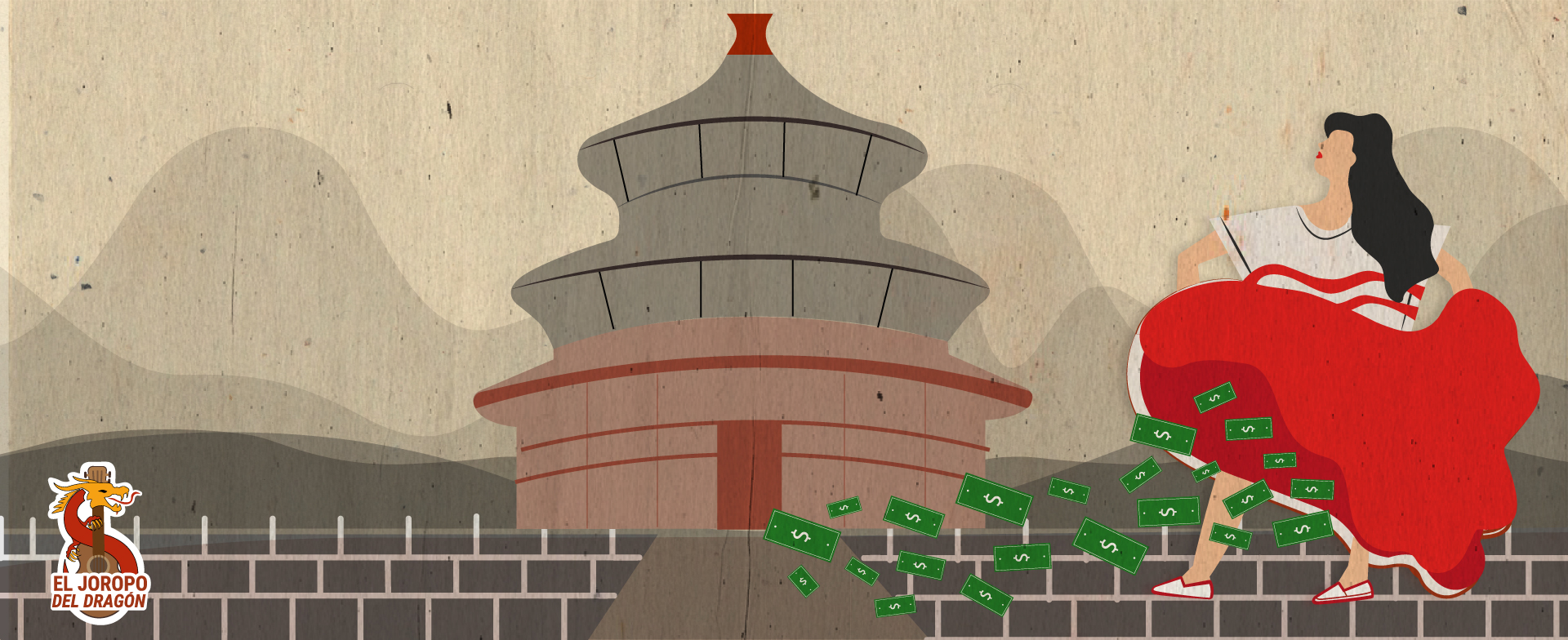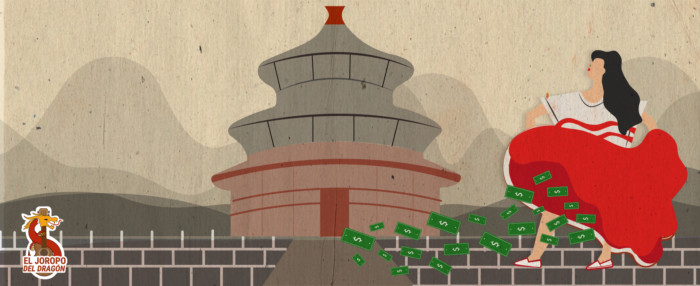

A collaborative journalism project on the economic and political relationship between Venezuela and China, patched together from official documents.
|
Getting your Trinity Audio player ready...
|
If there is one place in Latin America where China has concentrated a vast amount of effort, policy and resources in pursuit of greater influence, it is Venezuela. Over the last decade, the Asian country has invested $200 billion in the continent, just over a quarter of which reached the oil-rich South American country.
President Hugo Chávez paved the way. He was as determined to break the country’s traditional strategic alliances as he was eager for fresh money to push his so-called «21st century socialism». In 2007 the China-Venezuela Joint Fund was formally created, epitomising a new era of relations between Beijing and Caracas that began in 2001 with a simple handshake between Chávez and then Chinese President Jiang Zemin.
Beijing has contributed some US$30 billion to the China-Venezuela Joint Fund in three tranches called simply ‘A’, ‘B’ and ‘C’ since 2007 and had renewed it twice by 2015. A further US$20 billion was deposited in 2010 for a joint body called the Large Volume and Long Term Fund managed. In total, China put some US$50 billion on the table for the development of projects on Venezuelan soil (mostly carried out by Chinese companies) in exchange for mineral resources, oil, purchases of Chinese manufactured final goods and an implicit dose of political loyalty.
Armando.info and the Latin American Centre for Investigative Journalism (CLIP) obtained and processed hundreds of documents on the development of this cooperation between 2007 and 2012, which, according to Nicolás Maduro’s regime, has so far promoted 790 projects under the framework of the ‘Bolivarian revolution’. Diálogo Chino provided additional reporting.Official government spokespersons have always presented the relationship as advantageous for Venezuela, but these documents, which include project reports, memos between ministries, correspondence and payment orders, portray a Venezuelan administration that was enthusiastic but inefficient and disorganised. It was seemingly incapable of channelling Chinese financial support that was pragmatic but not always advantageous for Venezuela.
The progress of many of these projects has been underwhelming at best. With the partial exception of the launch of the Simón Bolívar, Francisco de Miranda and Antonio José de Sucre satellites (the first of which lost communication last year), cooperation between China and Venezuela left millions of dollars worth of disappointments.They include an abandoned railway system, the convoluted purchases of military aircraft and household appliances, and even an office that cost more to build than many of the projects put together.
The prospect of Chinese financial support was music to the ears of Venezuela’s top brass but the results of this cooperation have been anything but spectacular.
When Vice President Delcy Rodríguez turned to a group of Mexican friends and partners to lessen the new electricity emergency in Venezuela, she laid the foundation stone of a shortcut through which Chavismo and its commercial allies have dodged the sanctions imposed by Washington on PDVSA’s exports of crude oil. Since then, with Alex Saab, Joaquín Leal and Alessandro Bazzoni as key figures, the circuit has spread to some thirty countries to trade other Venezuelan commodities. This is part of the revelations of this joint investigative series between the newspaper El País and Armando.info, developed from a leak of thousands of documents.
Leaked documents on Libre Abordo and the rest of the shady network that Joaquín Leal managed from Mexico, with tentacles reaching 30 countries, ―aimed to trade PDVSA crude oil and other raw materials that the Caracas regime needed to place in international markets in spite of the sanctions― show that the businessman claimed to have the approval of the Mexican government and supplies from Segalmex, an official entity. Beyond this smoking gun, there is evidence that Leal had privileged access to the vice foreign minister for Latin America and the Caribbean, Maximiliano Reyes.
The business structure that Alex Saab had registered in Turkey—revealed in 2018 in an article by Armando.info—was merely a false start for his plans to export Venezuelan coal. Almost simultaneously, the Colombian merchant made contact with his Mexican counterpart, Joaquín Leal, to plot a network that would not only market crude oil from Venezuelan state oil company PDVSA, as part of a maneuver to bypass the sanctions imposed by Washington, but would also take charge of a scheme to export coal from the mines of Zulia, in western Venezuela. The dirty play allowed that thousands of tons, valued in millions of dollars, ended up in ports in Mexico and Central America.
As part of their business network based in Mexico, with one foot in Dubai, the two traders devised a way to replace the operation of the large international credit card franchises if they were to abandon the Venezuelan market because of Washington’s sanctions. The developed electronic payment system, “Paquete Alcance,” aimed to get hundreds of millions of dollars in remittances sent by expatriates and use them to finance purchases at CLAP stores.
Scions of different lineages of tycoons in Venezuela, Francisco D’Agostino and Eduardo Cisneros are non-blood relatives. They were also partners for a short time in Elemento Oil & Gas Ltd, a Malta-based company, over which the young Cisneros eventually took full ownership. Elemento was a protagonist in the secret network of Venezuelan crude oil marketing that Joaquín Leal activated from Mexico. However, when it came to imposing sanctions, Washington penalized D’Agostino only… Why?
Through a company registered in Mexico – Consorcio Panamericano de Exportación – with no known trajectory or experience, Joaquín Leal made a daring proposal to the Venezuelan Guyana Corporation to “reactivate” the aluminum industry, paralyzed after March 2019 blackout. The business proposed to pay the power supply of state-owned companies in exchange for payment-in-kind with the metal.